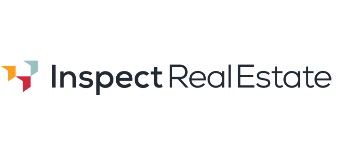How do I set and collect rent as a new property manager?
Initiating a real estate agency can be a challenging endeavour, but with the proper resources and understanding, it can be effortless. One of the most important aspects of property management is setting and collecting rent. In this blog post, we’ll go over the basics of setting and collecting rent as a new property manager, and how the Inspect Real Estate IREOne Start-Up Package can help make the process even easier.
Learn more about IREOne
Real Estate Software for New Agencies
First, it’s important to establish a clear and consistent rent collection policy. This should include information on when rent is due, how it should be paid (such as via direct deposit or check), and any late fees that may be assessed. It’s also a good idea to include information on how to report maintenance issues or make requests for repairs.
Once your rent collection policy is in place, it’s time to start collecting rent. This can be done through a variety of methods, such as electronic funds transfer (EFT), direct deposit, or even through a property management software like the Inspect Real Estate IREOne Start-Up Package. This software includes a rent collection feature that allows you to easily track rent payments and send reminders to tenants who are late on their payments.
It’s also important to keep accurate records of all rent payments and any related expenses, such as repairs or maintenance. This can be done easily using a property management software like the Inspect Real Estate IREOne Start-Up Package, which includes a feature for tracking expenses and generating reports.
In conclusion, setting and collecting rent is an essential part of property management. By having a clear and consistent rent collection policy in place, and utilising tools like the Inspect Real Estate IREOne Start-Up Package, you can make the process easier and more efficient.
If you’re interested in learning more about the Inspect Real Estate IREOne Start-Up Package and how it can help you with your property management needs, please fill out the form below to book a demo. Our team will be happy to show you how our software can streamline your business and help you be a successful property manager.
IRE Powers Top Real Estate Agencies
Starting up a new agency & need software?
IREOne is perfect for startup agencies.
Book a FREE consultation now
Frequently Asked Questions
How do I set rent for my properties as a new property manager?
Setting rent for your properties as a new property manager can be a bit tricky. A good place to start is by researching market rates for similar properties in the area. You can also consider factors such as the condition of the property, any amenities it may have, and the overall demand for rentals in the area. Once you have a general idea of what the market will bear, you can set your rent accordingly.
How do I collect rent from my tenants as a new property manager?
As a new property manager, there are a few different ways you can collect rent from your tenants. One popular method is to set up automatic bank or credit card payments, so that rent is automatically deducted from the tenant’s account each month. You can also accept rent payments in person or by mail. It’s important to establish clear policies and procedures for rent collection and communicate them to your tenants, so they know when and how to pay their rent.
What do I do if a tenant doesn’t pay rent?
If a tenant doesn’t pay rent, it’s important to take action quickly. Start by following up with the tenant to find out why they haven’t paid and when they plan to pay. If they are unable to pay, you may need to consider terminating the tenancy. However, it’s important to check your local laws and follow the proper eviction process.
How can I keep track of my tenants’ rent payments?
As a property manager, it’s important to keep track of your tenants’ rent payments to ensure that everyone is paying on time and in full. You can use a spreadsheet or accounting software to keep track of rent payments, or you can use specialised property management software. It’s also a good idea to keep copies of all rent payments, either in hard copy or electronically, for your records.
Can I increase the rent on my properties?
As a property manager, you may decide to increase the rent on your properties due to market conditions, property upgrades, or other factors. However, you must follow local laws and regulations when increasing rent, and you must give your tenants notice before increasing their rent. The notice period and how much notice you must give will vary depending on the laws of your state or municipality.


